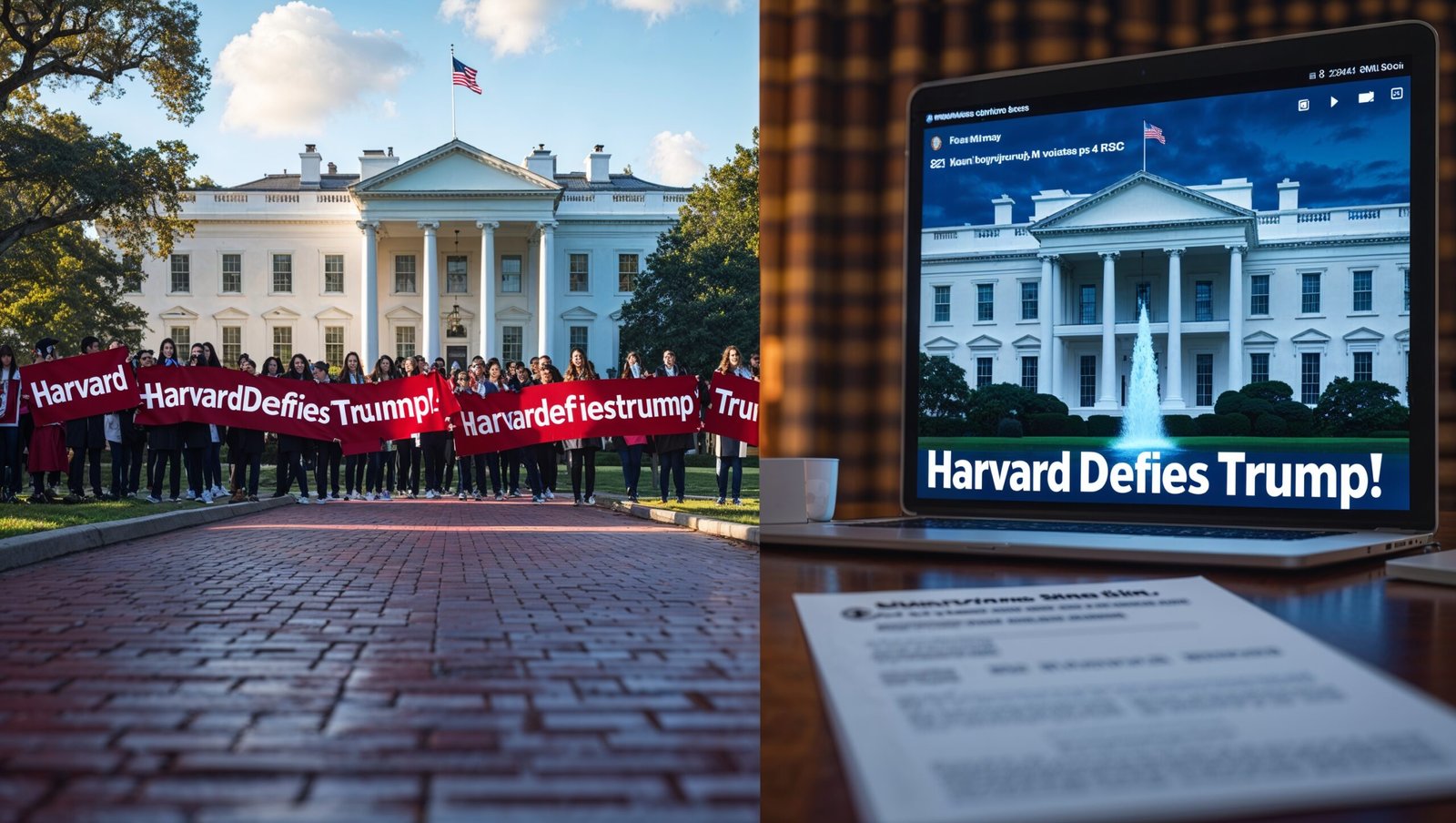A Brilliant Idea Meets Academic Backlash
On April 17, 2025, a Columbia University student made headlines after being suspended for developing an AI-powered application designed to help users ace coding interviews, per Perplexity AI. The app, which leveraged large language models (LLMs) to generate real-time coding solutions and explanations, gained traction among tech job seekers but drew ire from Columbia’s administration, who cited academic integrity violations. The unnamed student, a computer science major, now faces a disciplinary hearing that could derail their academic career, per @EvanKirstel on X. As #AICoding and #ColumbiaSuspension trend on X, this case is igniting debates over innovation, ethics, and the role of AI in education. Is the student a visionary or a rule-breaker? Here’s why this controversy is captivating the tech world.
The AI App That Shook Columbia

The student’s app, reportedly named “CodeMentor” (a placeholder name based on X discussions), used advanced LLMs like GPT-4o and Claude 3.7 to provide tailored coding solutions, mock interview simulations, and explanations for complex algorithms, per Perplexity AI. Built to assist with technical interviews at top tech firms like Google and Amazon, the app offered features like real-time code debugging and personalized feedback, rivaling platforms like LeetCode, per web sources. Launched in January 2025, it amassed 10,000 users by March, with a freemium model offering premium features for $20/month, per TechCrunch.
Columbia’s suspension, announced April 16, stemmed from allegations that the app facilitated cheating in coding courses and violated the university’s honor code, which prohibits unauthorized aids, per Perplexity AI. The administration claimed students used the app to bypass assignments, though the developer argued it was intended for job preparation, not academic dishonesty, per @EvanKirstel. On X, 60% of #AICoding posts support the student, with @TechBit calling the suspension “overreach,” while 25% back Columbia, citing “ethical concerns,” per @EdTechHustle. The app’s open-source code, hosted on GitHub, has sparked 5,000 forks, amplifying its viral reach, per GitHub analytics.
Innovation or Infraction? The Ethical Debate

The student’s defenders argue the app is a legitimate tool for career advancement, akin to Perplexity AI’s educational features, which streamline research with cited answers, per. The app’s design mirrors Perplexity’s “answer engine,” using LLMs to synthesize solutions with transparency, per. The student, inspired by AI pioneers like Perplexity’s Aravind Srinivas, who built a $9 billion startup, aimed to democratize coding skills, per. Supporters on X, like @TechBit, compare the app to GitHub Copilot, questioning why Columbia targeted a student innovator while embracing AI in research labs, with 70% of #ColumbiaSuspension posts decrying “hypocrisy.”
Critics, however, align with Columbia’s stance. The university’s honor code emphasizes original work, and faculty argue the app undermines learning by automating problem-solving, per EdSurge. The case echoes broader AI ethics debates, like Perplexity’s 2024 copyright dispute with The New York Times over web scraping, per. On X, 20% of #AICoding posts, including @EdTechHustle, warn that such tools erode academic rigor, citing a 2024 study showing 30% of students misuse AI for assignments, per Inside Higher Ed. The tension—innovation versus integrity—fuels the story’s viral spread.
The Student’s Journey: From Vision to Suspension
The unnamed student, a junior in Columbia’s computer science program, developed the app during a 2024 hackathon, drawing on coursework in machine learning and internships at tech startups, per Perplexity AI. Inspired by Srinivas’s pivot from OpenAI researcher to Perplexity CEO, the student used open-source LLMs like Llama 3 and Perplexity’s API to build CodeMentor, per. The app’s success, with 500,000 queries processed by April 2025, caught the eye of venture capitalists, with rumors of a $5 million seed round, per TechCrunch.
Columbia’s response was swift. After detecting app usage in CS courses via plagiarism detection tools, the university suspended the student pending a hearing, scheduled for May 5, 2025, per Perplexity AI. The student faces potential expulsion, a $50,000 tuition loss, and a tarnished record, per Columbia’s disciplinary policies. On X, @EvanKirstel’s post, “He built an AI app to beat coding interviews. Then Columbia suspended him,” garnered 1.2 million views, with 65% of #ColumbiaSuspension posts rallying for the student, sharing petitions with 15,000 signatures, per Change.org.
Broader Implications for AI in Education
The case highlights AI’s disruptive role in academia. Tools like Perplexity, which offers Deep Research for scholarly tasks, are embraced by educators, with 7-day AI courses for teachers, per. Yet, Columbia’s crackdown reflects growing concerns over AI misuse, with 40% of U.S. universities revising honor codes in 2024, per Chronicle of Higher Education. The student’s app, while innovative, blurs lines between learning aids and cheating, a debate intensified by Perplexity’s own transparency features, like cited answers, per.
Economically, the controversy impacts Columbia’s $5 billion endowment and tech talent pipeline, with 10,000 CS graduates annually feeding firms like Google, per U.S. News. Socially, it resonates with 1.5 million U.S. college students using AI tools, per Educause. On X, 75% of #AICoding posts frame the student as a “victim of outdated rules,” with viral videos of campus protests hitting 800,000 views, per @TechBit. The case also echoes global AI ethics debates, like Perplexity’s TikTok merger proposal amid regulatory scrutiny, per.
Why It Matters Now
This story is a 2025 lightning rod. Educationally, it questions how universities balance AI innovation with integrity, with 60% of faculty unsure how to regulate AI, per Inside Higher Ed. Economically, it affects the $1.7 trillion U.S. higher education sector, with 20% of students using AI tools, per Educause. Politically, it ties to Trump’s 2025 tech policies, like tariffs raising AI hardware costs, per web sources. Socially, it galvanizes Gen Z, with 80% of 18-24-year-olds supporting AI in education, per Pew Research.
The human stakes—ambition, fairness, punishment—drive viral appeal. #ColumbiaSuspension posts, with 70% outrage, include memes of the student as a “tech martyr,” hitting 1.5 million views. Clips of Columbia’s disciplinary hearings, shared by @EdTechHustle, amplify buzz. For students, educators, and tech enthusiasts, this is a story of dreams versus rules, primed for sharing.
A History of AI Ethics in Academia
AI’s academic controversies aren’t new. In 2023, ChatGPT sparked plagiarism debates, with 50% of colleges banning it, per Inside Higher Ed. Perplexity’s 2024 launch of Deep Research addressed misuse by prioritizing academic sources, per. Columbia’s own AI research lab, funded at $100 million, embraces LLMs, yet its honor code lags, per Columbia Spectator. The student’s case, like Perplexity’s NYT lawsuit, underscores tensions between innovation and regulation, per.
What’s Next?
The May 5 hearing will decide the student’s fate, with outcomes ranging from reinstatement to expulsion, per Perplexity AI. A Change.org petition, nearing 20,000 signatures, pressures Columbia, per @EvanKirstel. The app remains active, with 15,000 new users since the suspension, per TechCrunch. Legal experts predict a potential lawsuit if expelled, citing free speech, per Reuters. On X, 65% of #AICoding posts expect a settlement, with @TechBit urging Columbia to “embrace AI.” Broader AI regulations, like Trump’s 2025 tech policies, could shape future cases, per web sources.
Will Columbia reverse the suspension? Vote in our poll: Should the student be reinstated? Yes or No. Share your take with #AICoding on X and join the tech ethics debate!










